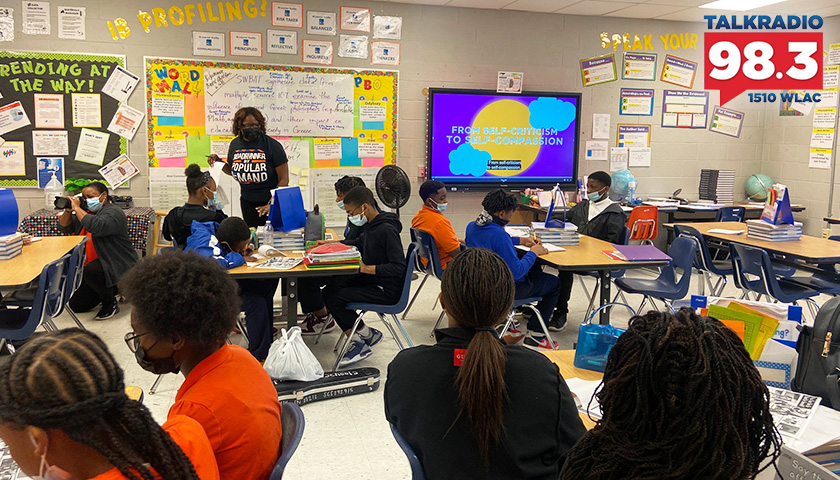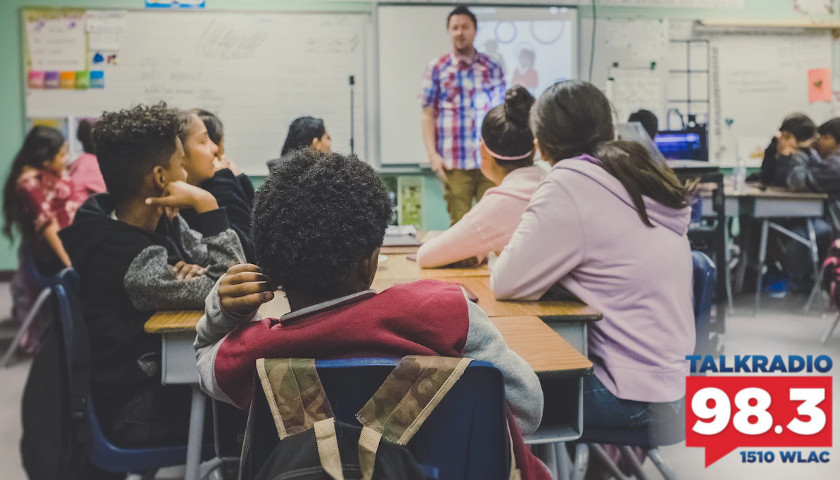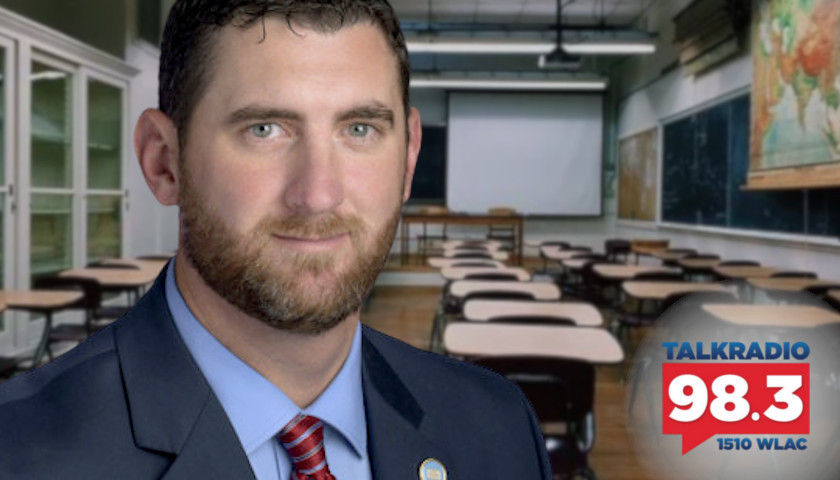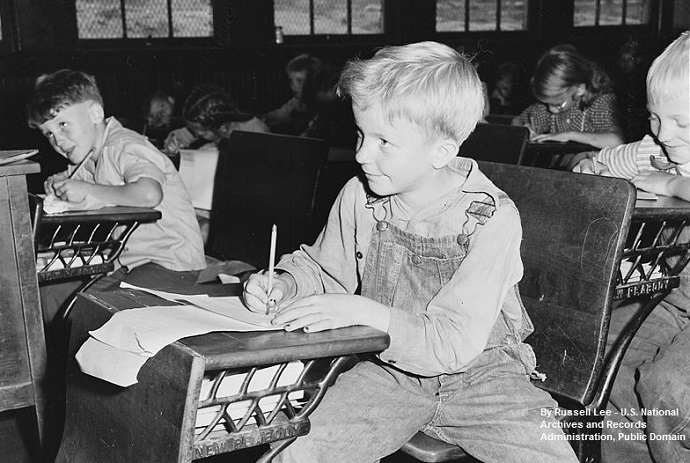Former Mississippi Gov. Phil Bryant (R) is celebrating the “comeback story” of his state’s fourth graders, who ranked on 2022 national test scores as the nation’s top performers in reading, and second in math, following the enactment of literacy legislation he spearheaded that saved the state from its “dead-last ranking in the United States.”
Read the full storyTag: literacy
National Teaching Advocacy Group Finds Fault with Tennessee Teacher Prep Programs
A recent report from the National Council on Teacher Quality (NCTQ) evaluates teacher prep programs across the country and finds several in Tennessee lacking.
The recently released report shows that nationally, most programs at colleges and universities that prepare future elementary teachers still do not fully cover the science of reading.
Read the full storyTennessee State Board of Education Rejects Proposed Rules Governing Third-Grade Retention Policy
The Tennessee State Board of Education (SBE) held a special meeting on Thursday to approve rules written by the Tennessee Department of Education (TDOE) governing the state’s new third-grade retention law. However, the board voted to defer passage until the next board meeting.
Read the full storyGovernor Lee Declares March 2023 Tennessee Literacy Month
Governor Lee is an avid advocate for literacy in Tennessee. In that spirit, he has proclaimed March 2023 as Tennessee Literacy Month, and throughout the month, the Tennessee Department of Education (TDOE) will be highlighting how reading is an essential skill for all students.
Commissioner Schwinn and the TDOE invite all Tennesseans to celebrate Tennessee Literacy Month, by spotlighting the Reading 360 initiative and the focus Tennessee’s educators, families, elected officials, and community partners have placed on improving literacy rates for all learners in the state.
Read the full storyUnder Proposed New Legislation, Tennessee Students Would Wait Until Age 7 to Start First Grade
Last week on 99.7 WTN, Tennessee House Representative Scott Cepicky R – Culleoka outlined to host Matt Murphy, legislation he intended to file to change the eligibility age for students entering first grade. Under Cepicky’s proposal, students would not be able to enter first grade until age 7, unless they could pass a local assessment showing that they could do grade-level work. The bill would allow younger students to take a “redshirt” year to adequately prepare for the increased academic demands of first grade.
Cepicky’s legislation is derived from a legislative brief on Kindergarten Readiness and Academic Performance, written by the Tennessee Comptroller of the Treasury’s Office of Research and Education Accountability (OREA). This brief shows that Tennessee students who were older at kindergarten enrollment performed better on 3rd-grade literacy tests than their peers. Forty-two percent of students aged 6 to 6.49 (older students) were on or above grade level in 3rd-grade literacy, compared to 33 percent of younger students aged 4.5 to 4.99 years old. The trend of older students outperforming their younger peers was also reflected on 6th-grade literacy tests.
Read the full storyState-Mandated Since 2021, the Third Grade Retention Law Has Tennessee State Legislators and Parents Calling for a Change
Lawmakers and parents are increasingly questioning Tennessee’s third-grade retention law. While Tennessee has long had legislation in place allowing districts the ability to retain third-grade students who did not score “proficient” on TCAP, the previous law left the decision up to local districts. Legislation passed during 2021’s Special Session took that decision out of local districts’ hands and made it state-mandated. A move that state lawmakers are now openly questioning.
Read the full storyTDOE Announces Partnership to Deliver Foundational Reading Books to Young Children Through the Christmas Season
The Tennessee Department of Education announced a partnership with the Governor’s Early Literacy Foundation (GELF) on Wednesday aimed to deliver books to the parents of young elementary school-aged children this winter. The books are offered at no cost and are for kindergarten through second grade children. The effort is part of the state’s increased commitment to early childhood literacy under Governor Lee.
Read the full storyThe Tennessee Comptroller’s Office Issues Report Providing Optimism, While Raising Questions Around K-3 Student Reading
A recently released report from the Tennessee Comptroller’s office shows that Tennessee K-3 students are making positive, albeit slight, growth in acquiring reading skills. Those conclusions were drawn from state-mandated K-3 universal reading screeners (URS), which all school districts are required to administer as part of legislation passed in 2021 during a Special Session of the General Assembly on education.
Legislators passed the Tennessee Literacy Success Act (TLSA), with the intent to ensure that students were on track to become proficient readers by the end of grade 3. The URS requirement was embedded in the bill as a means to safeguard taxpayer investment while delivering on promises made to Tennessee students.
Read the full storyCongresswoman Diana Harshbarger Urges Eligible Organizations and Institutions to Utilize the Library of Congress Surplus Books Program
Congresswoman Diana Harshbarger (R-TN-01) has published a news release urging all qualifying schools, libraries, and select nonprofit organizations located in her district and beyond to utilize the Library of Congress Surplus Books Program.
Read the full storyOhio Governor DeWine Declares August 9 ‘Dolly Parton Day’
Ohio Governor Mike DeWine signed a proclamation declaring August 9 as honorary “Dolly Parton Day” to commemorate the success of Parton’s Imagination Library of Ohio.
Dolly Parton’s Imagination Library of Ohio mails kids one book each month until their fifth birthday, 60 books. All kids in Ohio are eligible, and this program is available at no cost to families.
Read the full storyCrom’s Crommentary: Challenging the Abject Failure of Government Run Schools and Those That Support It
Friday morning on The Tennessee Star Report, host Leahy welcomed the original all-star panelist Crom Carmichael to the studio for another edition of Crom’s Crommentary.
Read the full storyMichigan Reading Scholarship Advocates Lament ‘Anti-Voucher’ Rhetoric Used Against Vetoed Program
When Michigan Governor Gretchen Whitmer (D-MI) line-item vetoed a $155 million program for K-5 reading scholarships in the $17 billion school budget she signed earlier this month, teachers’ unions and other school choice opponents likened the scholarships to vouchers.
Many proponents of the scholarship expenditure are responding that while they would welcome broader choice-oriented education reform, a plain reading of the program does not jibe with unions’ and school administrators stated concerns about impact on public education.
Read the full storyTennessee State Rep. Scott Cepicky Talks Education and His New Bill Called the Teacher’s Discipline Act
Thursday morning on the Tennessee Star Report, host Michael Patrick Leahy welcomed State Rep. Scott Cepicky to the studio to talk about one of 10 bills he’s introducing called the Teacher’s Discipline Act.
Read the full storyCrom Carmichael on the Demise of American Values Through a Lack of Basic Fundamental Principles in K-12 Schools
Wednesday morning on the Tennessee Star Report, host Michael Patrick Leahy welcomed all-star panelist Crom Carmichael to the studio to examine K-12 education and the decay of American values.
Read the full storyTennessee State Representative Clay Doggett Discusses Literacy as Special Session Focuses on Education
Tuesday morning on the Tennessee Star Report, host Michael Patrick Leahy welcomed Tennessee State Representative Clay Doggett to the newsmakers line to discuss the special session on education and their focus on literacy.
Read the full storyTennessee Democratic House Caucus Chairman Questions Need for Legislature to Hold Special Session on Education Challenges
One Democratic leader in the Tennessee House is questioning the need for a special session to address education topics.
State Representative Vincent Dixie (D-Nashville), chairman of the Democratic House Caucus, is skeptical, Fox 17 News reported.
Read the full story$20 Million Literacy Program Endorsed by Common Core Set to be Implemented in Tennessee before 2021 legislative session
Tennessee House Republicans have said childhood literacy is a top priority for 2021, but one literacy initiative endorsed by a drafter of Common Core standards and designed to encourage 40 school districts to comply with state standards is on track to be implemented before lawmakers return to Nashville.
The Tennessee Department of Education’s (TDOE) Comprehensive Literacy State Development program is designed to raise literacy achievement in 40 lower performing school districts.
Read the full storyCommentary: The Self-Indulgent Ignorance of Today’s Education Establishment Prospers at the Expense of America’s Children
The 2020 elections will afford us the chance to pass judgment on the immediate threat to our democracy posed by the intelligence agencies, the Democratic party, and the media in their grab for power through a bastardized impeachment process. But no such opportunity exists for us to deal with the most serious, most fundamental threat to our way of life, namely our thoroughly rotten educational establishment.
The problem has been festering for decades, and keeps getting worse.
Read the full storyThe Tragic Decline of Music Literacy (and Quality)
by Jon Henschen Throughout grade school and high school, I was fortunate to participate in quality music programs. Our high school had a top Illinois state jazz band; I also participated in symphonic band, which gave me a greater appreciation for classical music. It wasn’t enough to just read music. You would need to sight read, meaning you are given a difficult composition to play cold, without any prior practice. Sight reading would quickly reveal how fine-tuned playing “chops” really were. In college, I continued in a jazz band and also took a music theory class. The experience gave me the ability to visualize music (If you play by ear only, you will never have that same depth of understanding music construct.) Both jazz and classical art forms require not only music literacy, but for the musician to be at the top of their game in technical proficiency, tonal quality, and creativity in the case of the jazz idiom. Jazz masters like John Coltrane would practice six to nine hours a day, often cutting his practice only because his inner lower lip would be bleeding from the friction caused by his mouthpiece against his gums and teeth. His ability to compose…
Read the full storyEducation Policy: 9 Issues to Address in 2019
Public education is not “broken.” Public education policy is “broken,” and neighborhood public schools are suffering the consequences. Here are nine of the most critical and challenging issues in public education we should address in 2019 in Tennessee.
Read the full storyCommentary: Changing the Trajectory
Our economy goes hand in hand with quality education. A strong educational system is essential not only to the successful functioning of a democracy, but also to its very future.
Read the full storyCommentary: Literacy is the Key Challenge
You have read the statistics enough to know that there is an undeniable connection between literacy skills and incarceration rates. Children who do not read on grade level are more likely to dropout, use drugs or end up in prison. Research shows that reading abilities in third grade act as a tell-tale barometer for later school success.
Read the full story




















